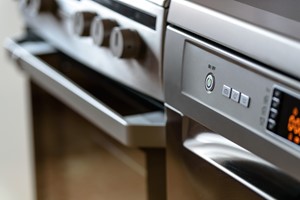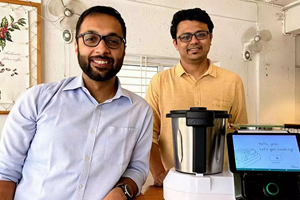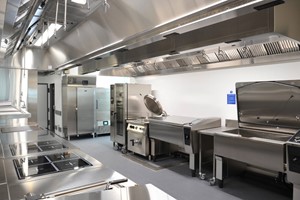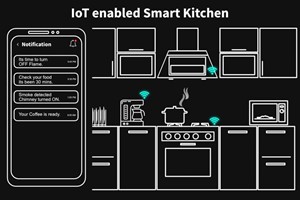Smart kitchen appliances are designed to provide more effectiveness and comfort than their traditional counterparts, according to Transparency Market Research. High energy efficiency is one of the key advantages of smart kitchen appliances. Technological advancements in kitchen appliances, including high-level sensors is currently one of the major factors driving the demand for various smart kitchen appliances worldwide. The report noted that the global smart kitchen appliances market is forecasted to grow at a CAGR of 29.1 percent from 2014 to 2022, reaching a value of USD2,730.6 Mn in 2022. The smart kitchen appliances market is majorly driven by the rising discretionary income of the people globally. Due to growing purchasing power, people tend to adopt luxurious goods thereby boosting the demand for smart appliances. Another significant factor fuelling the growth of smart kitchen appliances is the high advantages of smart kitchen appliances over traditional appliances. However, major factor hindering the market growth is the high costs of these appliances over traditional kitchen appliances. The smart kitchen appliances market can be segmented on the basis of products as well as applications, according to a recent report by Grand View Research. Products can further be segregated into ovens, refrigerators, dishwashers, scales & thermometers, and cookware & cooktops, kettles as well as coffee makers. On the basis of applications, the market can be segmented into commercial and residential verticals. Residential applications are expected to account for largest share in terms of revenue on account of rising expenditure on household devices. The report also added that North America is expected to hold major share in the smart kitchen appliances market. This can be attributed to the growing number of smart grid projects and changing preferences of consumers coupled with the subsequent rise in their purchasing power. Increasing government initiatives for the adoption of energy-efficient devices is one of key factors driving industry growth over the forecast period (2015-2022), on account of changing lifestyles of people as well as increasing awareness pertaining to the benefits of such devices. Asia Pacific is also anticipated to witness a considerable growth over the forecast period. Leading industry participants' focus on the adoption of technologically-advanced products and acquisition as the developmental strategy to meet consumers' requirements, increase the smart appliances' demand. Samsung is expected to launch a Wi-Fi enabled refrigerator, which allows users to receive as well as make phone calls and furthermore, helps in transferring TV programming from different rooms to the refrigerator screen.


Catering & Hospitality - Kitchen Equipment
Smart Kitchen Appliances Market
Sees Abundant Growth
March 2017

Smart kitchen appliances are premium appliances that are designed for comfortable and efficient operation. The most significant advantage of smart kitchen appliances is the high energy efficiency over traditional kitchen appliances. Due to growing advancements in the kitchen appliances industry, the smart kitchen appliances market is expected to witness strong growth in the near future, according to a recent report by Transparency Market Research. Smart kitchen appliances are equipped with different sensors that facilitate easy operation for the users. In addition, some of these appliances are designed with connectivity features that can connect to the other household appliances and also to handheld devices such as smartphones, tablets and others. Thus, users can operate their kitchen appliances remotely from their handheld devices thereby increasing the ease of usage of these appliances.












